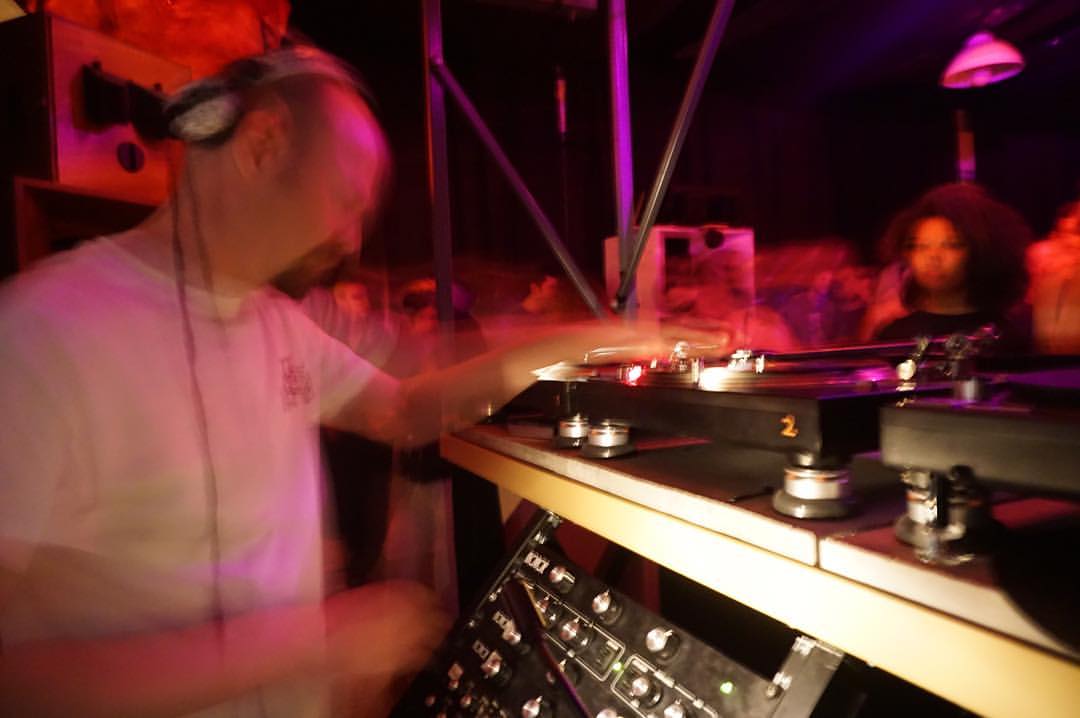At the Leeds Creatives event last week, we chatted to Tom Smith, founder of popular club night Cosmic Slop, which helps raise funds for Music and Arts Production (MAP), a charity that provides underprivileged young people with free vocational arts courses.
Tom Smith arguably knows more than anyone about the ins and outs of inner city Leeds life. A Leeds local himself, he traverses between the world that we as students know (the Cosmic Slop nights that he runs), and the reality that many of the city’s disadvantaged have to face – something he is currently combatting with his Music and Arts Production charity (MAP). MAP offers an alternative for young people who for various reasons aren’t able to attend mainstream education. We spoke to him at the Leeds Creatives function, an event that in many ways he inspired.
Earlier you were talking about regeneration issues you were facing in regards to Hope House [MAP HQ]. Do you think Leeds is headed for the same gentrification that London is undergoing?
It’s very pressing and depressing. I think in Leeds, in the north, we actually have quite an affluent city centre but then all around the city centre we’ve got a ring of poverty. So what are we going to do? Are we going to have shiny shops come right up to the suburbs? Or are we going to integrate the city centre with the communities around it? Are we going to offer opportunity to people from those communities so that they can actually fit in? Or are we going to pretend they don’t exist?
So do you think MAP and Cosmic Slop are ways of combating this gentrification?
If you see the artists come, and the creatives, then that is surely the first step of gentrification right there. So maybe I’m the vanguard of gentrification. But I think there’s a point where it’s healthy and there’s a point where it’s not. There’s a point where there’s a mixture of people and there’s genuine interaction. Then there’s a point where we’ve lost that, and all that’s left is the commercial aspect – it’s all about the money. So it’s not a straightforward question. I’m part of the problem, as we all are.
Looking at MAP as a charity, do you think that now you’re having to employ more people and do more paper work, it’s starting to seem more business like? Do you think there’s a risk of leaving those roots?
There’s a huge risk. One thing I’ve always loved about MAP is it’s so real and useful on a grass roots level, it has so much to give. As any organisation grows, there are certain processes that take place – bureaucracy is one.
I’m determined that we work with MAP and endeavour to make sure that the charity can keep on doing what it’s doing, that we listen to the people who are there on the ground everyday, doing the good work. The difficulty is that when you start talking about spending a large amount of money, the people you bring aren’t those people, they’re office people, they’re the bureaucrats. I’m a bit of a bureaucrat so I’m not criticising that, I do what I have to do. But there is a danger that you get a different type of people; in basic terms, you’re going to get people who are more middle-class, office based, educated academically speaking, and less frontline people who are going to work one-to-one and know how to engage with people from disadvantaged communities.
From a personal perspective, what turned your head towards charity work? Was there any kind of pivotal moment, or was it a gradual process?
So I did a lot of youth work. I’ll be honest with you, when I first interacted with young people that these types of projects are aimed at helping, they scared me. I wasn’t confident with them, the differences were massive and there was a communication difficulty. But as I worked more, those differences melted away and I learned roughly how to do it, and that we’re all the same.
But then I also wanted to build a sound system and open a music venue. Whilst I was trying to open this music venue, I was trying to do this youth work at the same time, and then I thought “Ah, it could be a music venue and then during the week we’ll do community projects”.
And then it turned from the emphasis on the music venue, to the emphasis on the community with the music facilitating that.
Following on from Cosmic Slop, do you think there are more similar events popping up?
Yeah. I’ve had several people call me over the years, and said “Look you’ve inspired me to do a similar thing with tangible social benefits from these music events.” And I think that this is something that’s going to increase. Otherwise we’re doing music events for what, to promote someone else? To promote a product? To just line our pockets for no reason?
Oisín Teevan

